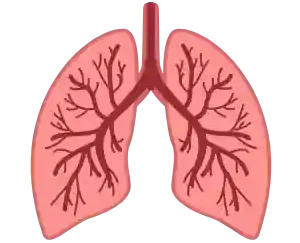Discover precision with the Racing Lungs Test, designed to measure lung performance accurately.
Disclaimer: Do not use this test if you have breathing problems such as asthma and the flu. Also, if you drink alcohol or smoke in everyday life, please consult a medical professional.
Racing Lungs Test
Test your lungs with this online inspection tool
Hold your breath to measure your lung capacity

Leaderboard
| # | Time (s) |
|---|---|
| 1 | 0.0 |
| 2 | 0.0 |
| 3 | 0.0 |
| 4 | 0.0 |
1. What is the Racing Lungs Test?
The Racing Lungs Test is an activity designed to assess your lung capacity, breathing efficiency, and overall respiratory performance. It’s often used in sports or recreational settings to help individuals understand their respiratory endurance during physical activities.
2. Who can take the Racing Lungs Test?
This test is suitable for individuals of all fitness levels who are curious about their lung function. Whether you’re a beginner, a seasoned athlete, or someone looking to improve their stamina, the Racing Lungs Test can provide valuable insights.
3. How does the Racing Lungs Test work?
The test typically involves controlled breathing exercises, measuring how long you can sustain certain breaths, and sometimes simple physical tasks. These activities are designed to challenge your lungs and provide a general understanding of your breathing capacity.
4. Why should I take the Racing Lungs Test?
The test can be a fun and educational way to gauge your current lung performance. It’s especially beneficial for athletes, singers, and people involved in endurance sports who want to track and improve their respiratory efficiency over time.
5. Does the Racing Lungs Test require special equipment?
Most versions of the Racing Lungs Test don’t require specialized tools. Basic items like a stopwatch, a timer, or even a smartphone app can be sufficient for tracking your results. For more advanced assessments, you might use devices like spirometers or fitness monitors.
6. Can the test be done at home?
Yes, the Racing Lungs Test can easily be performed at home with minimal setup. Many online guides and apps can help you follow the process step-by-step, making it a convenient option for self-assessment.
7. How can I improve my results after taking the test?
Improvement comes through consistent practice and activities that strengthen your lungs, such as regular cardio exercises, yoga, and breathing techniques. Keeping a log of your progress and repeating the test periodically can help you track your improvement.
8. Is the Racing Lungs Test safe for everyone?
The test is generally safe for most individuals. However, if you feel discomfort, dizziness, or shortness of breath during the activity, it’s best to stop immediately. While the test isn’t medical, listening to your body is always important.
9. What are some common misconceptions about the Racing Lungs Test?
One misconception is that the test can diagnose medical conditions. It’s essential to understand that the Racing Lungs Test is a general assessment tool and not a replacement for professional medical evaluations.
10. How is the Racing Lungs Test different from other lung assessments?
Unlike medical lung tests that require professional settings, the Racing Lungs Test is an informal way to understand your lung performance. It focuses on ease and accessibility, making it ideal for general self-awareness rather than diagnosis.
11. Can children take the Racing Lungs Test?
Children can participate as long as the test is adapted to their level. It can even be a fun and educational way to encourage physical activity and awareness about healthy breathing habits.
12. How often should I take the Racing Lungs Test?
For accurate tracking of your progress, consider taking the test once a month. This frequency provides enough time for noticeable improvements if you’re working on enhancing your respiratory performance.
13. Are there variations of the Racing Lungs Test?
Yes, the test can be customized depending on your goals. For instance, athletes may use more intense versions focusing on endurance, while casual users might opt for simpler breathing challenges.
14. What factors can affect my test results?
Your results can vary based on factors such as your fitness level, hydration, recent activity, and even stress levels. To ensure consistency, take the test under similar conditions each time.
